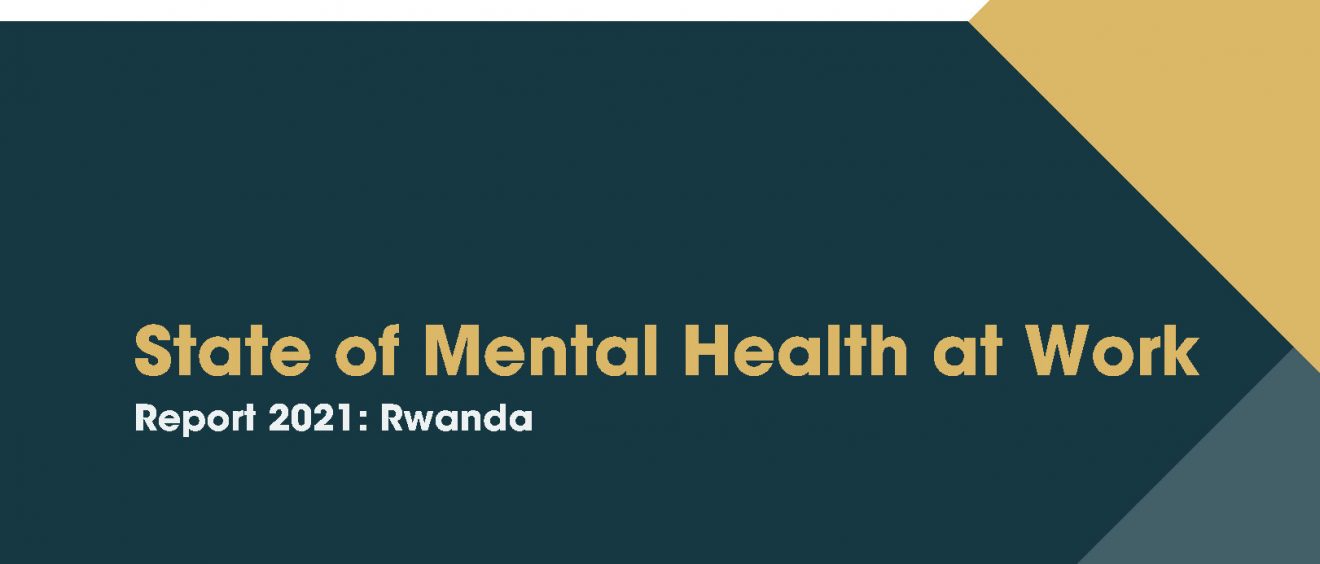
Report: State of Mental Health at Work – Rwanda 2021
Mental health and wellbeing at work are a growing concern for employers worldwide. Even before Covid-19 turned our lives upside down, we saw an increase in the global rates of common mental health challenges such as depression or anxiety. This went hand in hand with decreases in productivity and rising costs.
The Covid-19 pandemic has further aggravated the situation. Individuals and communities who have previously never given a second thought to their mental health and wellbeing are suddenly confronted with considerable degrees of stress, uncertainty, fear, worry, and concern. The changes that people face are major known psychological risk factors. As a result, it is undisputed among experts that the pandemic will have long-lasting consequences and effects on the mental health and wellbeing of billions of people both now and into the future.
Employers have a compelling interest to take effective and sustainable action. Leave alone the life-altering impact of untreated mental illness on workers and their families, they face rising healthcare costs, reduced productivity, and employee turnover. A growing number of studies show that comprehensive long-term approaches to employee wellbeing that especially also focus on evidence-based prevention and early intervention activities can not only be cost-effective but actually save employers money.
Over the past year, we noticed a significant interest among employers in mHub countries in Africa to introduce effective and sustainable Employee Wellbeing Programs. They also desire to launch workplace-wide dialogue about mental health challenges in order to fight the stigma and discrimination that remain pervasive in our countries’ societies and cultures.
For our 2021 report, we surveyed 214 full-time workers across Rwanda to better understand their attitudes and experiences related to workplace mental health and wellbeing.
You can read the full report here.
